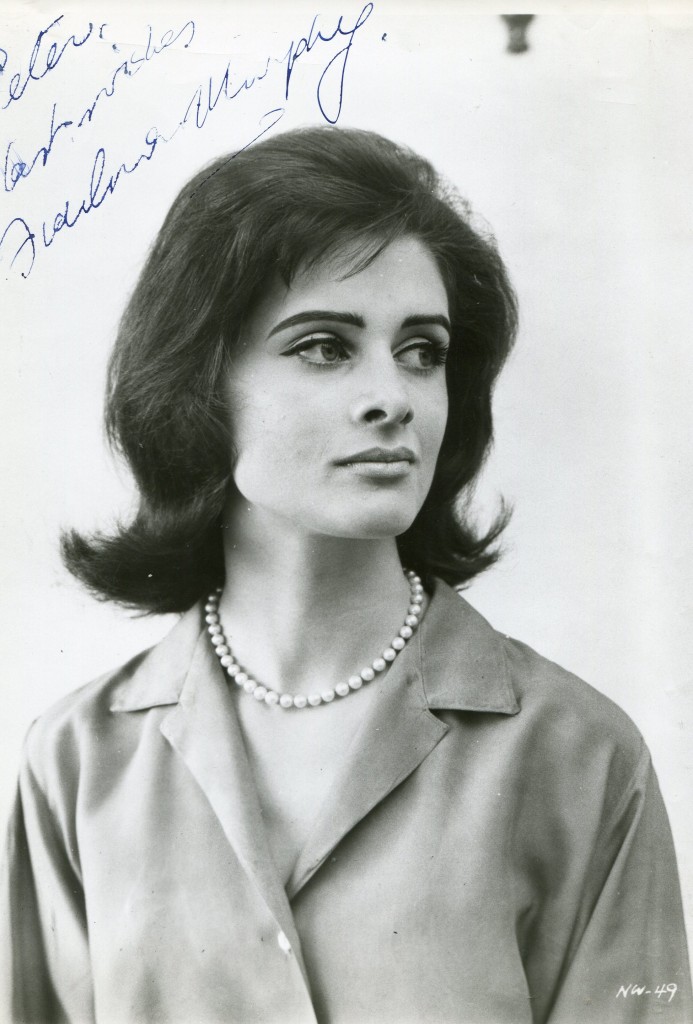
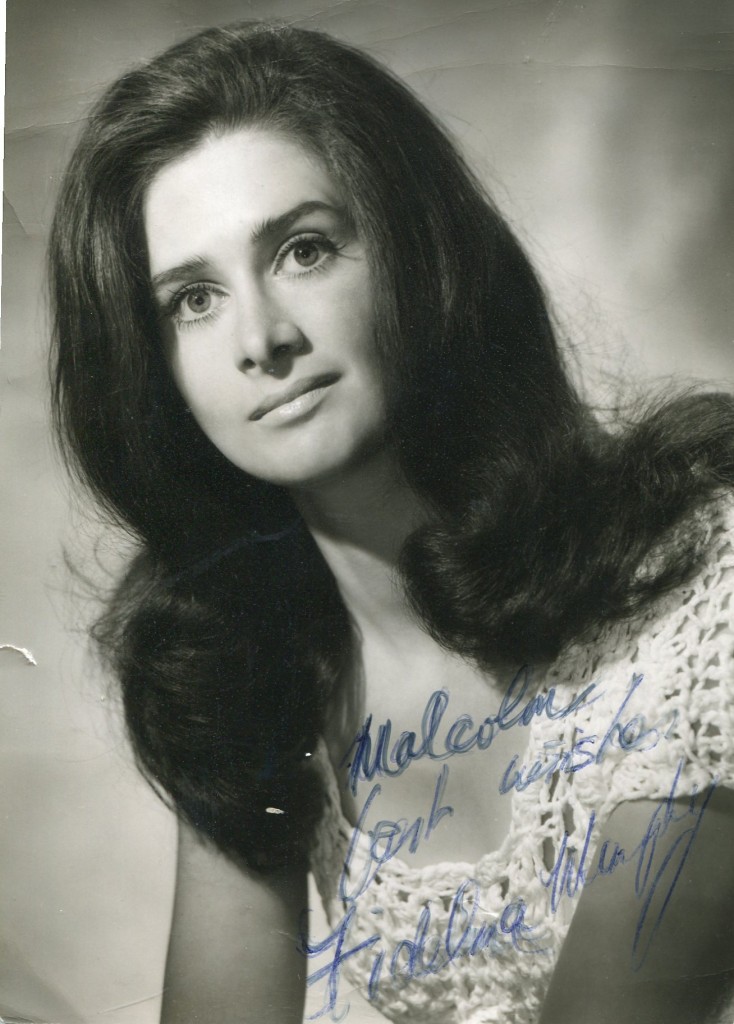
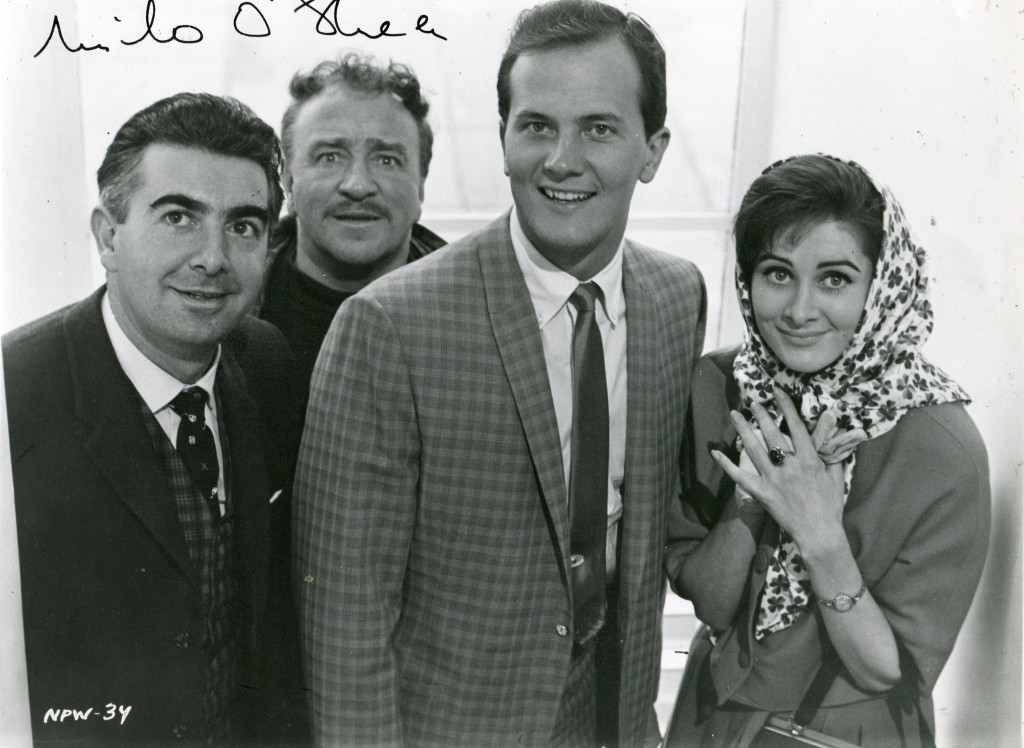
Fidelma Murphy obituary in 2019 in “The Irish Times”.
Cork born Fidelma Murphy made her movie debut opposite Pat Boone in 1963 in “Never Put It in Writing”. On the stage, she acted in Brian Friel‘s play, “Lovers”, at the Fortune Theatre in London, England in a Park Theatre Company production with Joe Lynch, Eamon Morrissey, Anna Manahan and Ruth Durley in the cast. Hilton Edwards was the director. In 1968 she acted in Dion Boucicault‘s play, “The Shaughraun”, in an Abbey Theatre of Ireland production at the Aldwych Theatre in London, England with Cyril Cusack, Donal McCann, Des Cave, Peadar Lamb, Brid Lynch and Maire O’Neill in the cast. Hugh Hunt was the director.Her other films include “The Fighting Prince of Donegal”, “Sinful Davey” and “Philadelphia Here I Come”. She also featured in “Glenroe” as ‘Dick Moran’s’s’ wife. She featured recently with James Nesbitt in an episode of “Murphy’s Law”. Fidelma Murphy died in October 2018.
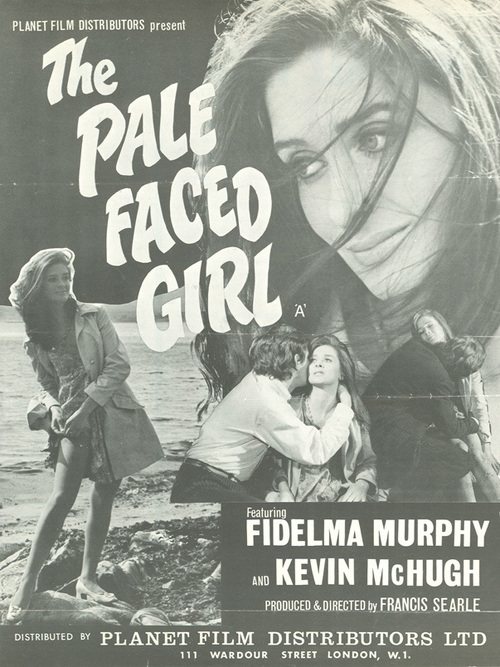
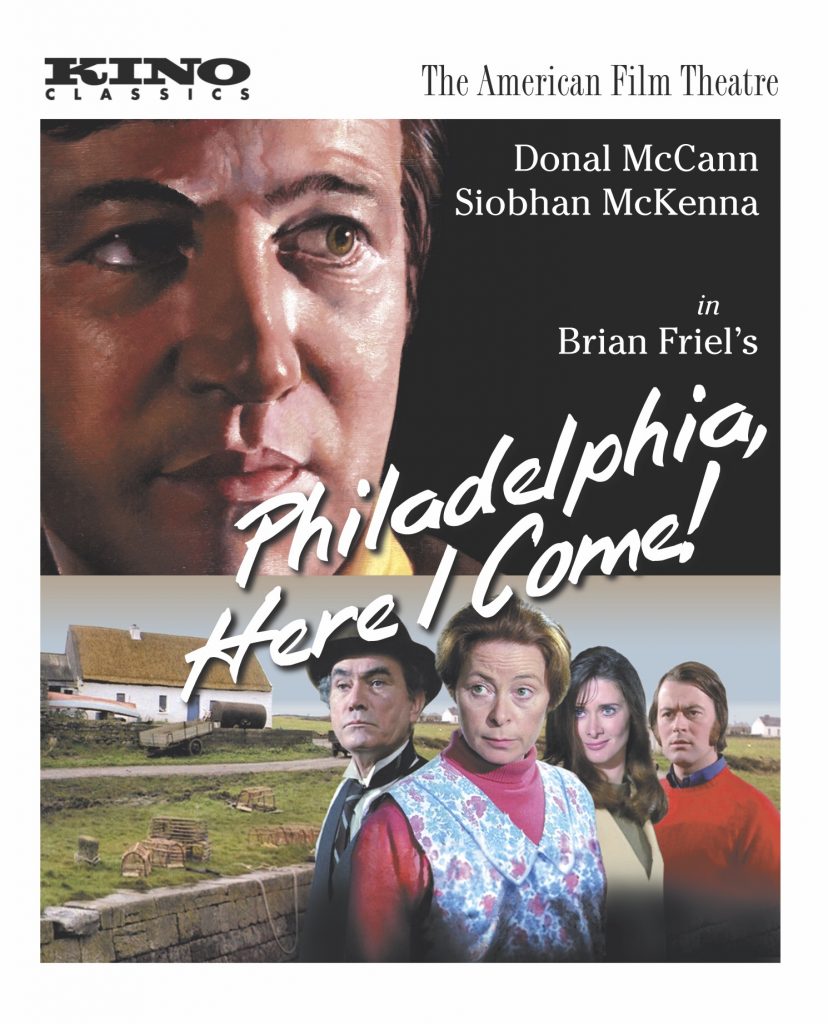
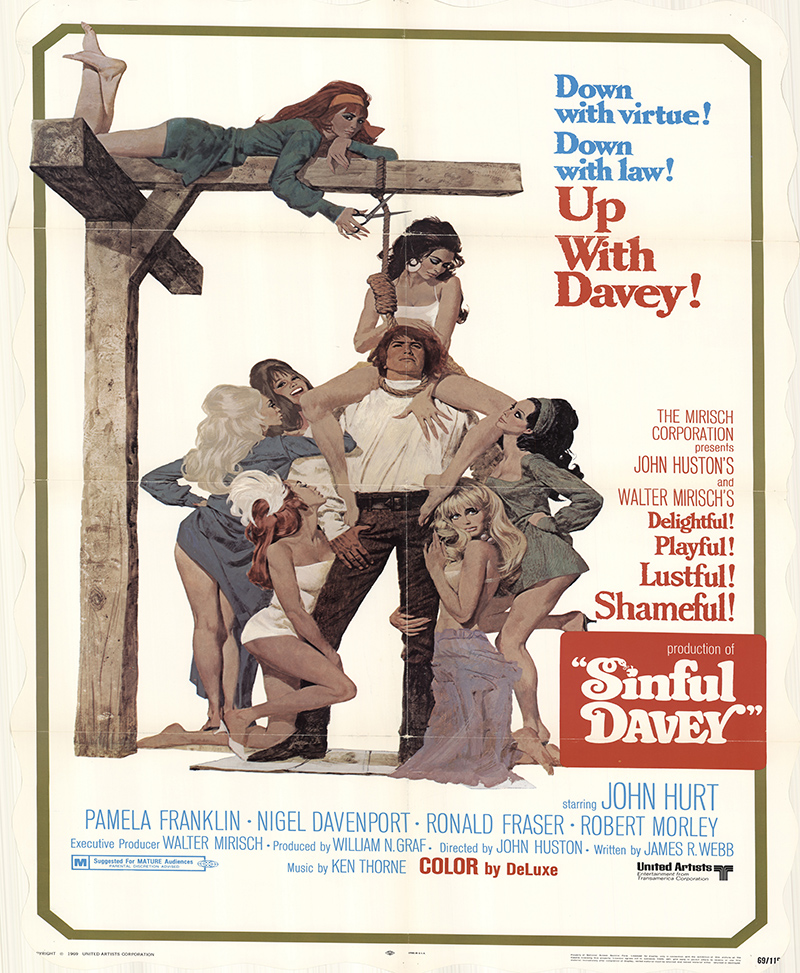
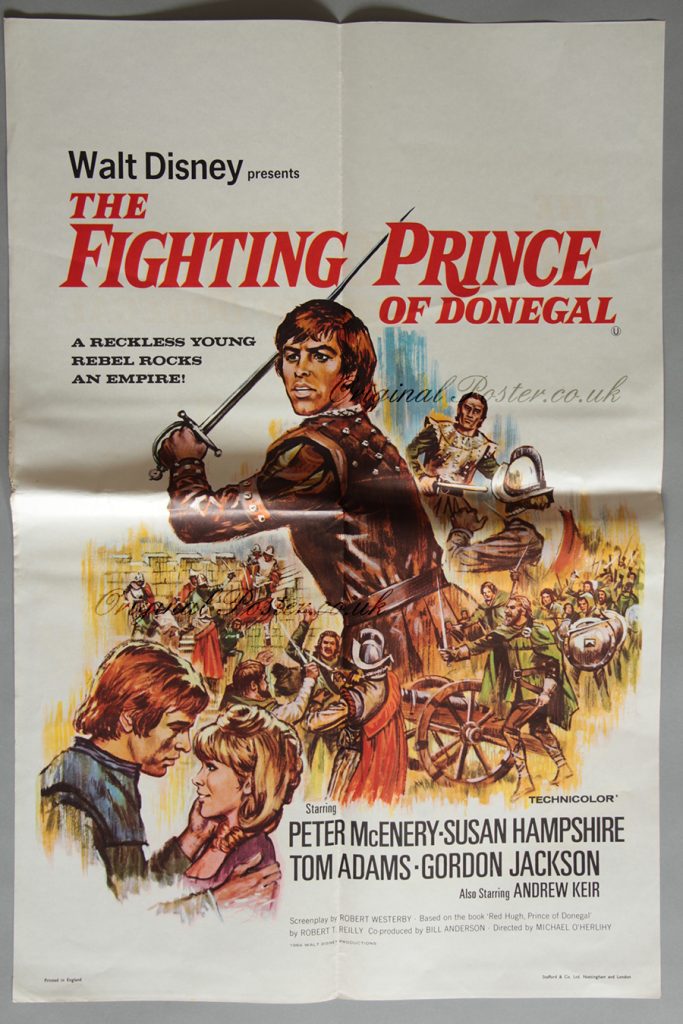
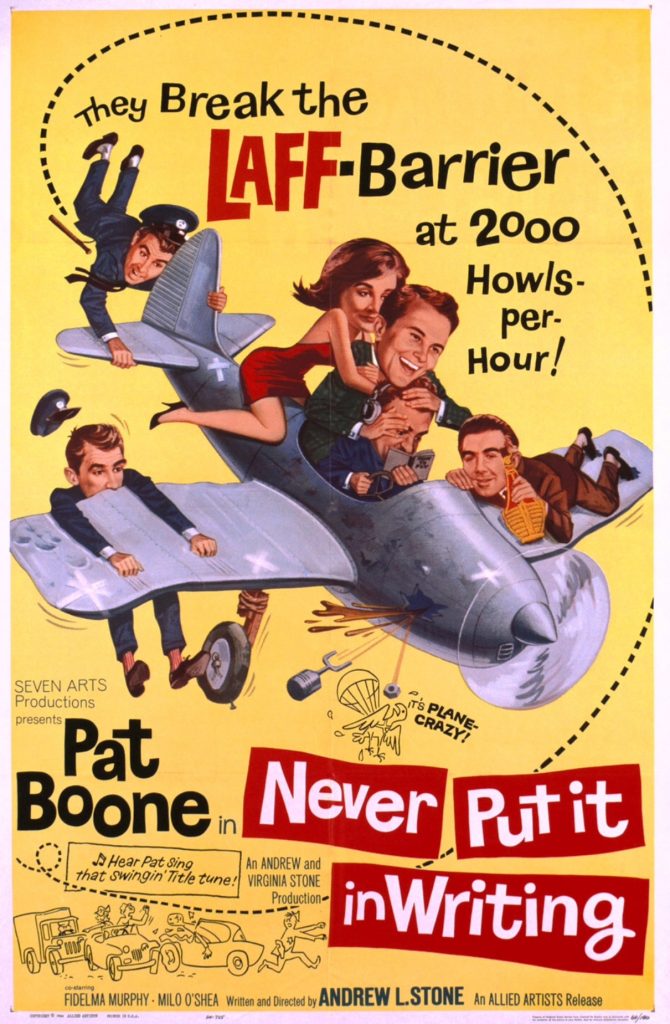
Fidelma Murphy Who has died aged 74, was an Irish actor lauded as “a child prodigy” and “a national treasure”, with her work in theatre, TV and film in this country, the UK and the United States in the 1960s and 1970s.
The words quoted above are those of renowned Irish actor Pat Laffan, who was speaking recently to The Irish Times of the extraordinary impact of her early work at the Abbey Theatre to which she was recruited as possibly its youngest-ever member in 1959 aged just 15, and of her appearances in films such as Never Put it in Writing (opposite Pat Boone) in 1964, The Fighting Prince of Donegal (a story of Red Hugh O’Donnell, which was produced by Walt Disney) in 1966 and Sinful Davey in 1969, directed by John Huston, and featuring John Hurt in the title role.
Fidelma had joined the Abbey by a happy coincidence, when she was seen in a school play at St Aloysius’ convent in Cork by someone who knew the then Abbey artistic director, Ernest Blythe. Murphy soon found herself in Dublin, living with her mother in Oscar Wilde’s birthplace on Westland Row, which was run as an actors’ boarding house at the time, and honing her craft at the Abbey School of Acting.
Murphy made her first appearance, to noted critical acclaim, in Richard Johnson’s controversial-for-its-time The Evidence I Shall Give, in 1961. Almost immediately afterwards she played the young pregnant Traveller woman in Bryan MacMahon’s The Honey Spike. This was in effect her big break, and it brought her to the attention of an American film director, Andrew Stone, who cast her as the young female lead opposite Pat Boone in Never Put it in Writing in 1964. At the Abbey, Ernest Blythe had refused her permission for leave to make the film, believing she was too young, but, in the first of many daring decisions in her professional life, she resigned from the Abbey company aged just 19, in 1963.
As well as her film work, Murphy acted in several British television serials in the 1960s, including such then highly-regarded programmes as Armchair Mystery Theatre, No Hiding Place and The Wednesday Play, and, for RTÉ, the ground-breaking dramatisation of Liam O’Flaherty’s Land.
Her theatre work also flourished, and included notable performances in Dion Boucicault’s The Shaughran, opposite Cyril Cusack, at London’s Aldwych Theatre in 1968. She played Laura in Tennessee Williams’s The Glass Menagerie in 1964 with the Group Theatre in London, and, also in London, in a famous production of Brian Friel’s Lovers, as the young female student opposite Eamonn Morrissey’s young man, at the Fortune Theatre in the West End, directed by Hilton Edwards.
Murphy was to reprise this latter role when Phyllis Ryan brought the play to New York the following year in a new production opposite Patrick Dawson and directed by Barry Cassin, which received very favourable reviews from the notoriously hard-nosed US theatre critics.
She based herself increasingly in London from the early 1970s. Actor Wesley Murphy (no relation) recently told The Irish Times she was not afraid to court controversy, appearing with him in England’s Ireland, a play by David Hare, Snoo Wilson and Howard Brenton, highly critical of British policy in Northern Ireland in the aftermath of Bloody Sunday in Derry in 1972: “Originally the play was to have opened at the Bristol Old Vic, but it was pulled because of the political situation and we had to open eventually in Amsterdam. It was highly controversial agitprop theatre. Eventually we opened in London at the Royal Court, and later at the Roundhouse, Chalk Farm.”
Notable film work at this time included a cinematic version of Brian Friel’s Philadelphia Here I Come in 1977, playing Katie Doogan with Donal McCann as Gar Public. Controversy
Controversy also surrounded one of Murphy’s last theatre performances at the Dublin Theatre Festival in 1983, when she appeared in the first-ever female nude scene on an Irish stage with five other women in Nell Dunn’s comedy Steaming.
Although it seems risible today, the nude scene, in which six women friends dive into a swimming pool naked, sparked outrage.
Murphy’s work was mostly for television in the 1970s and 1980s, with parts in TV films and serials including The Sinners (1970), Napoleon and Love(1974), Oil Strike North (1975), Off to Philadelphia in the Morning (1978), Whose Child? (1979), Painted Out (1984) and Echoes (1988).
After the 1980s, and a move to the New York, where she played with the Irish Repertory Company, Murphy’s acting career gradually slowed, and she moved into the real estate and antique businesses, buying apartments and houses in Dublin and New York. Her last home, a beautiful Georgian apartment in Dublin at the corner of Crow Street and Dame Street, was a showcase for some of her best antiques purchases over the years.
She was born in Cork in 1944 to Timothy Murphy, a former senior police officer in the Hong Kong police, who had been awarded the King’s Police Medal, the highest such decoration for a serving officer in the British Empire, and his wife Mary, nee Colbert. Her father had retired in 1937, and the family had settled in Kinsale at Drumderrig House overlooking the bay.
Fidelma Murphy never married, and is survived by her sisters Tanis and Moonyeen. She was predeceased by her brothers Timothy jnr and Fergus, and by her sister Colleen.

